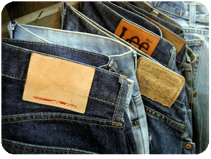In an earlier issue of the newsletter, we took a look at the methods that Chinese authorities use to curb the production of counterfeit merchandise. For the most part, these measures focused on reporting knockoffs of big names like Nike and Gucci. But combating pirated products isn’t solely the problem of multinational brands. For instance, in 2012 Jeff Sasaki took his iPhone accessory company Element Case to a Hong Kong trade show. When he arrived at the convention, he found knockoff versions of his smartphone cases in three other companies’ booths.
Although he confronted the forgers about their infringement, a few weeks later he found bootleg Element cases for sale online. The incident led Sasaki to hire a full-time brand-protection manager so that the company could find fakers faster. “Counterfeiting is huge–and it’s so much more harmful to a company our size,” said Sasaki. With so many small businesses becoming involved in e-commerce, pirates can now rip off virtually any brand, not just household names. In fact, companies are at the greatest risk of being copied shortly after they’ve experienced a spell of success. Once an item becomes popular with the public, it’s not long before counterfeiters start to crank out knockoff versions.
Still, not every company can afford a brand-protection manager like Element Case. At the very least, companies are advised to keep a close eye on the Internet. Copycat merchandise can appear on seedy online outlets at any time, requiring businesses to check resale sites and social media often for any infringement. Joining forces with other companies to combat piracy can be effective as well. The headphone brand Monster, for example, regularly holds meetings about knockoff products with as many as 50 of its competitors. Together the companies split the costs of investigators, lawyers and counterfeit factory raids in order to take on their common enemies. Businesses can also take a cue from China’s fraud busters and enlist their customers to watch out for any pirated products. Some eBay users have even developed guides to spotting fake items for high-end brands like Diane von Furstenberg and Chanel.
Questions:
- What is the major problem companies face in dealing with counterfeit products?
- Why are emerging brands at greater risk from knockoffs than established brands?
Source: Jennifer Alsever, “How to Win Against Counterfeiters,” Inc., March 2015. Photo by: Ben Donley.

